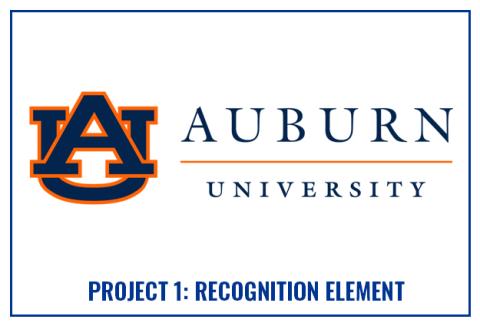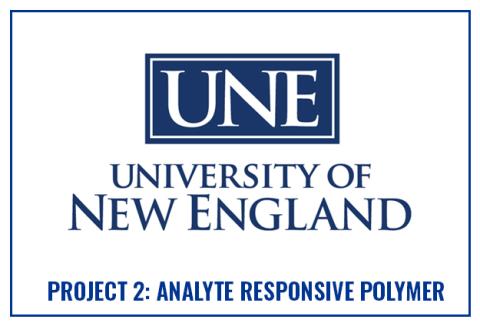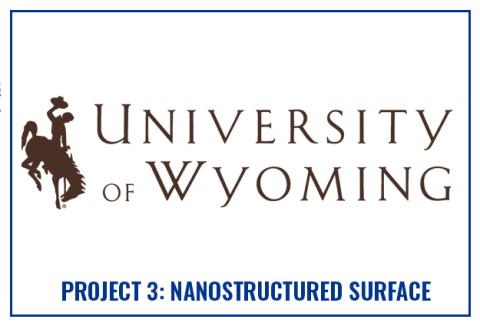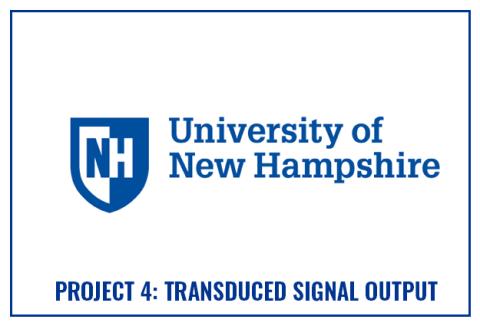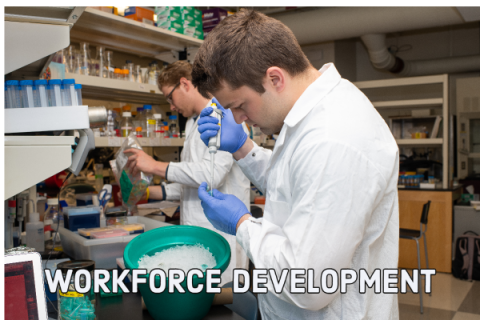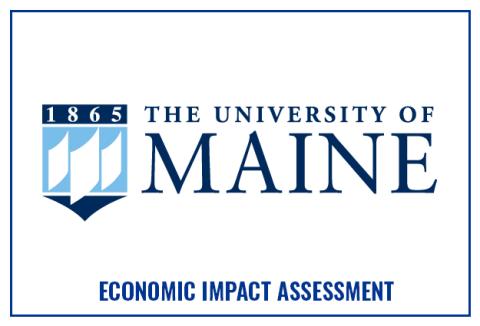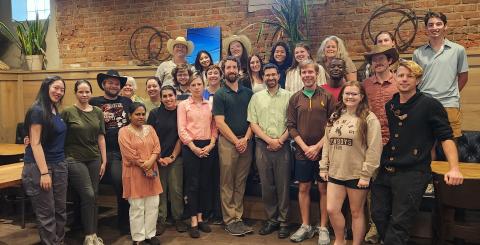
BIO-SENS team in Laramie, WY, July 31, 2024 celebrating another successful academic and industry symposium.
Great work team!
BIO-SENS Research Objectives
The overarching goal of this project is the development of “universal” biotechnology sensing platforms that enable the use of advanced manufacturing principles in biomanufacturing.
We have assembled a geographically diverse team to address the need for the on-demand design of biosensors capable of continuously monitoring conditions during the biomanufacturing process. BIO-SENS will develop engineering principles to guide on-demand biosensor design covering the full assortment of sensor components: the recognition elements that bind analytes; the stimuli-responsive linkers that amplify the binding signal; the form factor of the sensor; and the final transduction of the signal.
This research is coupled with a multi-tiered workforce development plan guided by an industry advisory board, including early-career faculty development; postdoctoral scholar training; graduate and undergraduate education; and K-12 education and community outreach, all tied together through an annual academic-industry biotechnology symposium.
BIO-SENS is funded by a National Science Foundation EPSCoR Award (#2119237).
BIO-SENS Research Projects
BIO-SENS research is carried out through four connected research projects
Project 1: Design of new recognition elements, Co-PI Robert Pantazes; Auburn University
Project 2: Design of analyte responsive polymers, Co-PI Eva Rose Balog; University of New England
Project 3: Reproducible nanofabrication for multi-analyte measurements, Co-PI Caleb Hill; University of Wyoming
Project 4: Transduction of sensor surface response, PI Jeffrey Halpern; University of New Hampshire
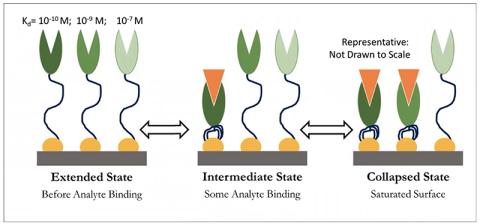
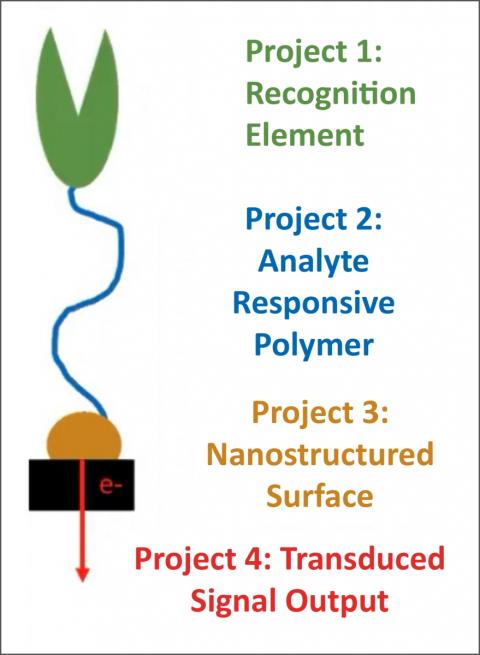
Workforce Development
BIO-SENS research efforts are complemented by a comprehensive workforce development plan that includes training of early-career faculty, postdoctoral scholars, graduate and undergraduate students, K-12 education, as well as community outreach. To ensure the success of these activities, each of these groups, as well as industry partners, will come together in-person or digitally at an annual Academic-Industry Biotechnology Symposium that will rotate through the four jurisdictions.
Economic Impact Assessment
BIO-SENS will use the same economic modeling approach utilized in Maine's 10 year economic plan and extend this analysis to Alabama, New Hampshire, and Wyoming. This economic impact assessment is led by Dr. Andrew Crawley at the University of Maine. The model's “thematic” approach combines industrial, occupational, and skill-based data to assess long-term growth potential. This unique approach will produce novel ways to capture the full economic impacts of BIO-SENS research and workforce development activities.

